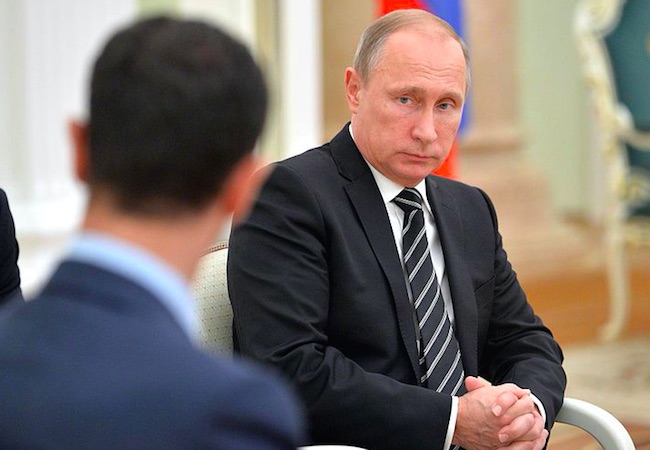Putin’s strategic use of time

By Paul Shields
Russian President Vladimir Putin has taken up to the game of international chess and become one of its key players. His reversion in recent years to a great power logic, geopolitical maneuvering, and blatant disregard for the current international order is a critical new form of political behavior not seen since the Cold War era.
In terms of Putin’s assertive foreign policy, one of his keys is his ability to act in time, rather than becoming a victim of it. In other words, he tends to make bold moves that confront international order when the chips are down and the attention of the West and its allies is elsewhere. This seems pretty standard – Strategy 101. Yet recent history and current events shows that timing for Putin is essential and part of his strategy.
For example, Russia annexed the Crimea Peninsula in March 2014 when Ukraine was recovering from a political revolution. From November 2013 to February 2014, Ukrainian protestors battled on Maidan Square in Kiev, upset over an EU referendum and crippling levels of corruption. While all this was occurring, Russia recognized an opportunity, and quickly organized a land grab. Ukraine, understandably, could not form a politically legitimate response to a violation of their sovereignty while the West was left with sanctions as its alternative.
Moreover, Russia’s increased involvement in Syria and has occurred during a wild and tumultuous election season in America. The political will, energy, and the attention of the current administration have been focused on domestic political events. Russia in the meantime has increased its number of airstrikes in Syria and strategically placed a set of missiles within Syria’s borders. Putin knows he can act aggressively in this time frame, knowing their will be a limited response during the confusion at home.
Finally, right before the second presidential debate between Hilary Clinton and Donald Trump, Putin’s administration snuck a set of nuclear warheads into Kaliningrad, an outpost of Russian land in nuzzled inside Polish borders. In other times, this would have been huge international news. Russia just placed nuclear arms deep in European territory further threatening the region’s stability and security. However, most news headlines and pairs of eyes, in the West, were focused on the mud slinging debates.
If Putin continues to pursue his current agenda of destabilizing western liberal institutions and rewriting the rules of international order, we can expect more bold behavior in the next few months. With a new Presidential administration, the U.S. government will seemingly have to transition approximately hundreds of high-ranking jobs overnight. Bureaucrats are packing their bags and new ones are just moving in. Timing could not be better for altering the balance of future negotiations with the United States.
In response, those who have time left in office in the United States should keep a finger on the pulse in Russia. Policy makers should be anticipating and preparing for further Russian military and political involvement in the Middle East, Eastern Europe, and on the high seas. For the new comers in the next administration, be ready to act. Putin’s chessboard maneuvering is likely here to stay.




